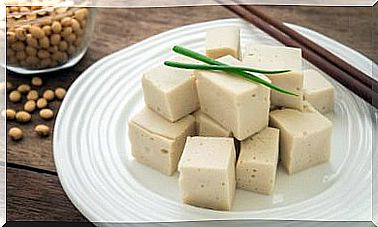Over-the-counter Drugs
Over-the-counter (OTC) drugs are drugs that can be purchased without the need for a prescription.
What are over-the-counter medications?
There are certain drugs, usually in widespread use, that are sold without the need for a prescription. These drugs are considered safe enough for the population. A medical review and subsequent prescription are not considered necessary for the affected person to be able to acquire them.
The over-the-counter sale of drugs emerged in order to achieve greater savings, both time and money, when diagnosing and treating a patient. In the face of minor conditions, the affected person can quickly dispose of the products intended to treat their symptoms.
The advantages offered by this system are very clear. It is a way of decongesting the health system. Over-the-counter medications can prevent and treat minor symptoms. Thus, medical consultation is reserved for the case of serious pathologies.
However, even if they are non-prescription drugs available at any pharmacy, parapharmacy or even supermarket, we must not forget that we are purchasing drugs. Therefore, its consumption must be consistent and responsible.
Some of these drugs are, for example:
- Flu.
- Antiallergics.
- Drugs against constipation.
- Vitamin complexes.
Considerations

First of all, although over-the-counter drugs are considered safe for the population, it should not be forgotten that, like all drugs, they carry certain risks.
No medicine is completely without causing side effects. They can also interfere with some other type of substance or even cause allergic reactions. Regarding side effects, it is especially important to monitor the use of non-prescription medications in the case of pregnant women or children.
Therefore, although over-the-counter drugs are a great help when it comes to alleviating certain symptoms or curing minor illnesses, without the need to go to a medical consultation, it is vitally important to carry out a responsible consumption of them. We must always have a total knowledge of what type of medicine we are taking.
On the other hand, the correct choice of medicine comes from the hand of the affected person and their own self-diagnosis. This implies possible errors when choosing the appropriate treatment. Therefore, here we will summarize a few tips when choosing an over-the-counter drug.
How to choose the right medicine?

In deciding what type of over-the-counter medicine to take, a number of guidelines should be taken into account :
- Read the leaflet carefully. We will pay special attention to the recommended dose, possible adverse effects and cases in which the use of the drug is contraindicated.
- Do not consume the medicine for longer than the time stipulated in the leaflet.
- Consult with the pharmacist aspects such as the recommended dose, possible adverse effects and the specific symptoms suffered. Thus, we can better decide what type of medicine to take.
- Pay special attention in the case of being allergic to some type of compound. We must ensure that the chosen drug does not contain it.
How to read a prospectus?

Any drug, over-the-counter or not, must be accompanied by a leaflet detailing its risks and benefits. It also includes all the information related to the active principle and mechanism of action of the compound. The parts of which a prospectus consists are:
- Active ingredient : this includes the generic name of the drug and the amount of product that is included in each box. It should be taken into account that there may be drugs with different trade names for the same active ingredient.
- Uses : it is specified for what type of symptoms or condition the use of the drug in question is recommended.
- Warnings: this includes aspects such as in which situations the doctor or pharmacist should be consulted, in which cases the drug is not recommended, etc. Specific warnings are also included, for example, for pregnant women.
- How to use: the dose and the time that the medicine should be taken is specified.
- Inactive components: here are detailed what other compounds the drug contains, in addition to the active ingredient. The inactive components of a drug can have various functions. For example, give the medicine a specific taste.
In short, we can say that the implementation of the over-the-counter drug system has brought great benefits to society. Now we can treat minor symptoms quickly and easily. However, the correct use of these drugs rests on us.
Although we are responsible for a reasonable consumption, we must not forget that there are health professionals willing to help us in this task. This is, in fact, the mission of the pharmacist. Therefore, do not forget, “read the instructions of this medicine and ask the pharmacist.”









